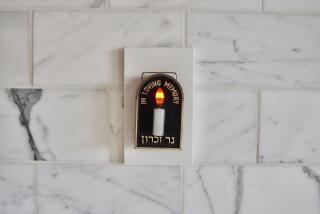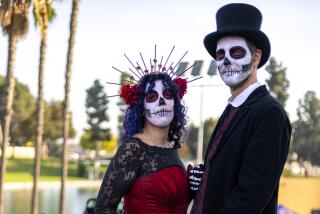Among the Dead, Prayer for Our Enemies : Memorial Day: We should mourn for all who have died because of militarism.
I remember the first time I prayed for an enemy. It was just outside An Khe, a village in the Central Highlands of Vietnam. A helicopter gunship rocketed some North Vietnamese regulars who were about to attack us. I prayed for those kids. My top sergeant berated me for my prayer. I realized then that my enemy was not the North Vietnamese, not the Viet Cong, but militarism. As for the first sergeant, he was a good man who was simply unaware, unaware of the fact that loving an enemy means loving specific people, North Vietnamese in this case.
Loving can also involve mourning. We mourn the loss of people loved. If we truly love our enemies, then we truly mourn their loss. For it is we the living who have lost a loved one. In this way can we realize not only the humanity of an enemy, but our own humanity as well.
In the Tao Te Ching, a victorious warrior is advised to dress for mourning. Perhaps that’s a bit extreme by Western standards. But it is to the point, for it makes the warrior and his neighbors consider what has been done. War is no victory parade. It must be seen for precisely what it is, a choice. A painful choice. A choice that calls for mourning.
Memorial Day honors soldiers who
died for our country. Since I’m a Vietnam veteran, that’s OK by me. I would
expand the memorial’s concept, however. I would like a day in which we mourn for all--men, women, children, soldiers, civilians, friends, enemies--who died because of militarism. The Iraqis, for instance.
Greenpeace estimates that at least 120,000 Iraqi soldiers and 76,000 civilians were killed during the war. Since then, the civilian death toll related to the war and its aftermath has reached perhaps a quarter of a million. According to the New England Journal of Medicine, between January and August of 1991, 50,000 children died as a direct result of health problems brought on by the bombing of the Iraqi infrastructure. Total deaths among children are estimated to be 170,000.
Can we mourn for 170,000 dead Iraqi children? I suspect the answer is “Hell No!” That answer is disturbing, because the opposite of mourning is not rejoicing; the opposite of mourning is being numb to suffering.
Or perhaps, instead of expanding the concept of Memorial Day, we should create an entirely separate day of mourning. Perhaps we should simply mourn for the children of the world. A Children’s Memorial Day. Consider the following. According to UNICEF, 1.5 million children have died in wars during the last 10 years; 4 million are disabled by land mines, firearms and torture; 5 million live in refugee camps; 12 million lost their homes in a war. Whole generations have lost years of schooling. Millions are vulnerable to famine, illness and disability. UNICEF admits that it cannot measure the numbers of orphans or the psychological traumas brought on by war.
And consider also that the United States is the world’s leading arms merchant. I recall reading somewhere that the third leading cause of death in Cambodia is land mines--mostly American-made land mines.
A Children’s Memorial Day would have a civilizing effect on us, for, in addition to mourning for these, the littlest victims of war, it would allow us to mourn what we have become. And to love ourselves for what we can become.
Being civilized is not something we are just given. In many ways, civilization is a constant series of choices and assents. Granted that from the cradle we are given language, culture and so forth. To be a peaceful society, however, this we choose. To be peaceful in our language, in our actions, in our prayers, to this do we assent. And assent and assent again and again, for in each instance when we feel threatened are we required to assent anew to peace.
I once heard another veteran, a North Vietnamese poet, say that every time he shot an American, he first aimed at the heart of that soldier’s mother. And for that soldier, and for that woman, did he mourn.
Let me be perfectly clear. I do not begrudge our veterans their parades. I’ve marched in a few myself. I ask my neighbors to join us old vets to mourn for all soldiers and all civilians, to mourn for all victims of militarism. And to mourn those people by name. Yes, to mourn for Robert, my childhood companion, a 20-year-old who died in ‘Nam in 1968. But to also mourn for Ahmed, a 5-year-old stranger, who died in Baghdad this year for lack of clean water. And to mourn for their mothers, their fathers, their families, relatives, neighbors, friends. To mourn. To love.
And, finally, to mourn for ourselves, our nation. For in this manner may we learn to love our enemy as we love ourselves.
More to Read
Sign up for Essential California
The most important California stories and recommendations in your inbox every morning.
You may occasionally receive promotional content from the Los Angeles Times.










